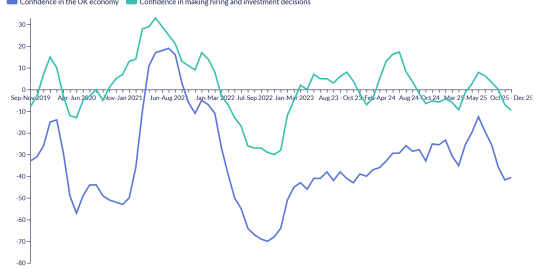New Vodafone UK Working Nation research reveals women are twice as likely to say they have learnt many new skills through the recession
One in five UK managers say they have a skills gap as a result of recession
Women are twice as likely as their male colleagues to say they have had to cover the gap by learning many new skills
A third of workers say that having to learn new skills has increased their stress levels at work
Blending traditional skills with emerging ësoft skillsí such as innovation and leadership, is seen by experts as the way to succeed
The latest Vodafone Working Nation report, launched today, identifies details of the skills gap in UK companies brought on by headcount losses and shrinking training budgets while also revealing that women feel they are doing more than their male counterparts to fill the breach.
While 12% of all those surveyed say they have had to learn some new skills to cover for departed colleagues, female workers are twice as likely as their male colleagues to say they have had to cover gaps by learning ëmanyí new skills (one in ten compared to one in twenty men).
The skills gap is also taking its toll on younger workers. While a third of workers overall say that having to learn new skills has increased their stress levels at work, the figure peaks at 36% among 16-24 year olds enduring their first significant slowdown, compared to 29% of those aged 55 and over.
Overall, 80% of workers who have had to learn new skills say they have not had sufficient training. Again it is the younger workers that feel the most vulnerable; 50% of 16-24 year olds say that they have had no new training at all to help them learn new skills, compared to 20% of 25-34 year olds and 25% of those between 35 and 44.
New skills include softer skills for coping in tough economic times, where growth is limited but a workforce needs to be motivated. Gary Browning of Penna Plc says: ìLeaders need a new set of skills. The tough single minded focus of previous years needs to be balanced with humility, respect and an ability to be visionary in adversity. Itís a tough call for any leader but these softer skills need to be learned by many.î
Peter Kelly, Enterprise Director, Vodafone UK commented: ìOrganisations of all sizes in all sectors are either considering or have already had to make difficult decisions regarding their people. Itís important to investigate how reorganisations of workforces are impacting the skills base; what makes the difference between surviving and succeeding; and what advice can be given in managing costs without destroying old and new skills. This Working Nation report offers valuable insights into these areas.î
The report also uncovers the human impact that the current skills deficit is having on the workforce as well as the views of managers trying to defend their skills base in the face of recession. 37% of employers say that they have had to make headcount reductions in the past 12 months. And while 34% of businesses say they are continuing to invest in skills unabated, the majority (66%) are either reducing or stopping investment in skills development & training.
As a result, one in five businesses say they now have a gap between the skills they have in the workforce and the skills they need to survive and succeed. Despite this awareness there is a danger that some businesses are not taking action to resolve the issue because they feel that their competition is in the same situation as them - 58% of businesses say they do not feel at any real disadvantage (or advantage) compared to the market or the competition for when the economy recovers.
Women say they are filling recession skills gap

New Vodafone UK Working Nation research reveals women are twice as likely to say they have learnt many new skills through the recession




